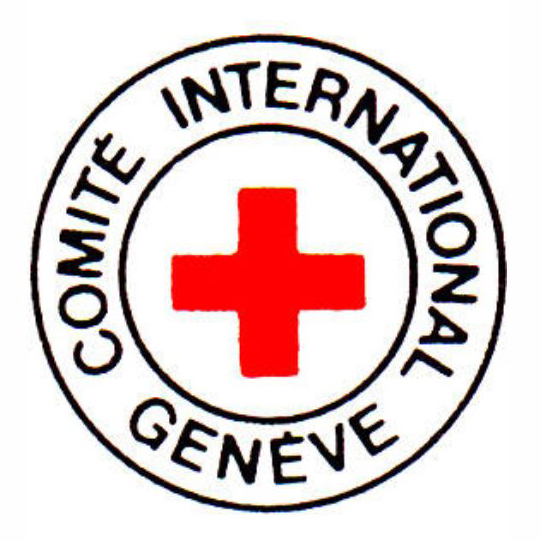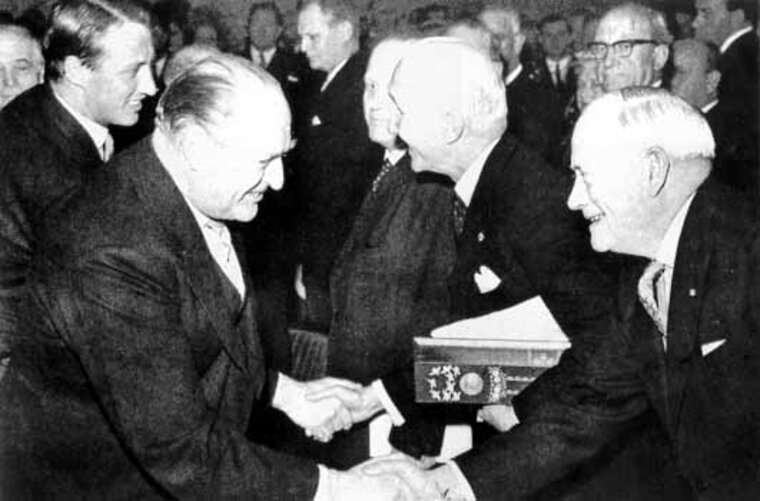International Committee of the Red Cross
Speed read
The International Committee of the Red Cross was awarded the Nobel Peace Prize, jointly with the League of Red Cross Societies, for promoting the principles of the Geneva Convention and cooperation with the UN.

Full name: International Committee of the Red Cross
Native name: Comité international de la Croix Rouge
Founded: 1863, in Geneva, Switzerland
Date awarded: 10 October 1963
Awarded for the third time
The year 1963 marked the 100th anniversary of the founding of the Red Cross by Henry Dunant (Switzerland), Nobel Peace Prize laureate of 1901. The Norwegian Nobel Committee used this occasion to acknowledge the importance of the Red Cross for the international community. It also wished to reward the organisation’s post-war contributions. On this occasion, the Swiss International Committee of the Red Cross shared the honour with the League of Red Cross Societies. Together these two organisations comprise the International Red Cross movement. The Norwegian Nobel Committee focused particular attention on the efforts of the International Committee of the Red Cross in connection with the revised Geneva Convention of 1949 and activities during the conflicts in Algeria, the Congo, Hungary and Tibet.
"The work of the Committee is so closely coordinated with that of the League that to all practical purposes they form a unity, and in many fields they work hand in hand with the United Nations."
- Carl Joachim Hambro, Member of the Nobel Committee, Presentation Speech, 10 December 1963.

"The International Committee is, therefore, completely national by composition, but international in its mission."
- Léopold Boissiers, Nobel Prize lecture, 11 December 1963.
Expansion of the Geneva Conventions
The first Geneva Convention, from 1864, gave protection to sick and wounded soldiers in land-based warfare. In 1906 the Convention was expanded to include naval warfare. In response to the events of WWI, the revised Geneva Convention of 1929 also included the protection of prisoners of war. After the close of WWII, the Geneva Convention of 1949 was adopted, encompassing protection of civilians held by the enemy in wartime.
Nomination campaign of 1963
When Red Cross founder, Henry Dunant, was nominated for the Nobel Peace Prize in 1901, military medical officer Hans Daae (Norway) conducted an intense campaign for his selection as laureate. Daae believed that Dunant’s efforts had brought civilisation “a giant leap forward.” With the 100th anniversary of the Red Cross approaching in 1963, Hans Daae’s son Anders, a paediatrician, launched a similar campaign for the Red Cross. Anders Daae had first-hand experience with the Red Cross from his years as a prisoner of war in Germany. Like his father, Anders Daae succeeded in convincing the Nobel Committee.
"The International Committee has no material power. It has no arms and would not even know how to resort to diplomatic maneuver. But its apparent weakness is offset by its moral authority."
- Léopold Boissiers, Nobel Prize lecture, 11 December 1963.

Learn more
Play a game!
Disclaimer: Every effort has been made by the publisher to credit organisations and individuals with regard to the supply of photographs. Please notify the publishers regarding corrections.
Nobel Prizes and laureates
See them all presented here.
